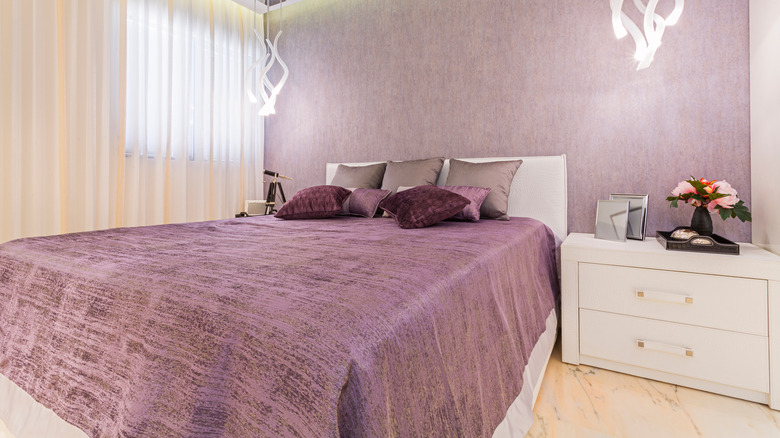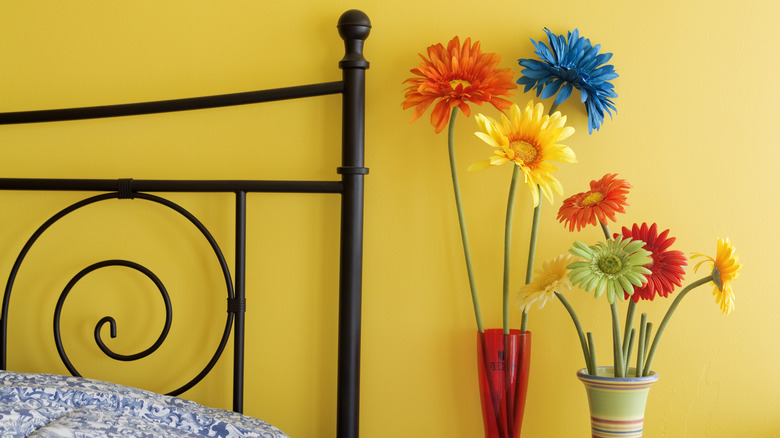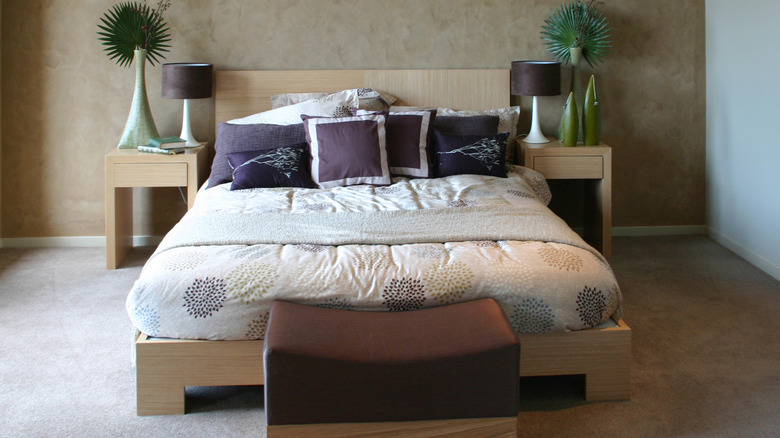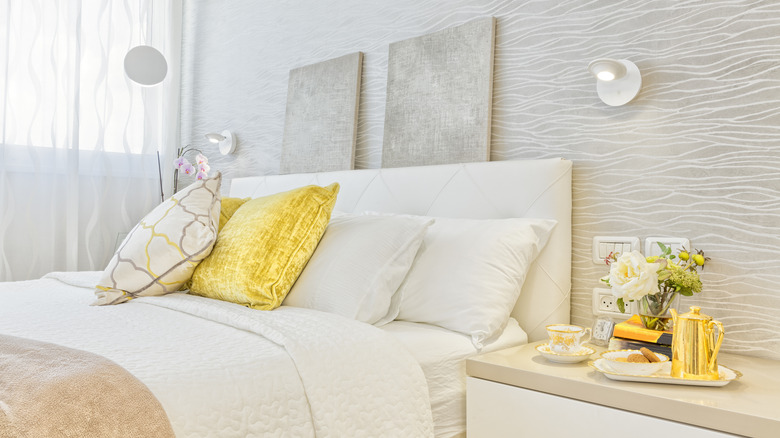How To Properly Feng Shui Your Bedroom, According To An Expert
Spending time in your bedroom should leave you feeling rested, de-stressed, and calm. However, for many homeowners, their bedroom has the opposite effect. Thankfully, there are many feng shui tenets practitioners can employ to improve the energy, good fortune, and balance of their most-used room. Bedstar notes that one of the most important practices here is bed positioning. However, they report on eight energy areas (or baguas) with which the practice involves itself. These represent eight wrinkles of life itself and the communities we exist in.
In an exclusive interview with House Digest, Leslie VanDerven, a strategic interior design advisor at Real Estate Bees and a certified feng shui professional, offers her take on enhancing the aesthetics and balance of the bedroom. "Bedrooms are meant for sleeping, reading, reflecting, romancing, and recharging. This is my feng shui-inspired recipe for creating a cozy, sensual bedroom atmosphere that invites communication, complete rest, and rejuvenation," VanDerven says.
Décor tips and aesthetics
It might be best to think about the aesthetics of the room first. Color is prominent in any design strategy, particularly so when it comes to feng shui. The central focus is the room's energy, and color selections can add liveliness or infuse a dull aura. "In your bedroom, you'll find new energy in body, mind, and spirit if you use the color red in the décor and keep your bedroom free of clutter," VanDerven says.
The certified feng shui professional also recommends considering the decorative additions that make their way into the space. "Place symbols of union in the room, e.g. same height or matching nightstands, matching lamps, two candles, or a sensual sculpture. Make sure all the objects in the room elicit positive thoughts and memories of your relationship or the relationship you wish to have." If you love to keep fresh flowers in your bedroom, decorate using flowers whose color will supply beneficial energy. "Display a vase of fresh flowers, preferably red, pink, and white," VanDerven says.
Bed positioning and best practices
The bed is an essential fixture in any bedroom, so positioning it correctly is vital. It's also likely the largest thing in the room, so constantly relocating it is probably not an option. "Make sure you can access your bed from both sides, and do not position it under beams or slanted walls. Make sure your view from the bed is a good one, not staring into the bathroom at the toilet. Choose art over the bed that is lightweight or solidly anchored to the wall," VanDerven notes.
Your bed also shouldn't be positioned in such a way that invites negativity or stress into the space. "Avoid placing mirrors in the room, especially near or reflecting the bed. Seeing your reflection from bed gives the unsettling illusion that there is someone else in the room with you," VanDerven says. The coffin position — or a bed that's directly facing the room's door — should also be avoided at all costs.
What to keep out of your bedroom and why
Naturally, there are plenty of things to avoid keeping in your bedroom. Above all, this space should remain calming and comforting, yet so many of the items and furnishings that are ubiquitous to them in modern times impart the opposite effect. "Avoid furnishings that have sharp edges and corners, protruding metal legs, or anything that could be dangerous to sleepy — or amorous — body parts," VanDerven says. Rough lines tend to make a space feel clinical and harsh, significantly dampening the comfort you feel in your the sleeping quarters.
Separating various phases of your day is a great way to promote efficiency while the day demands it and relaxation during your down time. So if much of your room is dedicated to business, entertainment, and the like, finding a new home for unnecessary features can provide a meaningful boost to your restfulness. "Remove all electrical equipment, like the TV, stereo, laptop, cell phone, and chargers," VanDerven suggests. "Also, never put a desk or exercise equipment in the room. These items are 'awake' with work and stimulating rather than relaxing."



